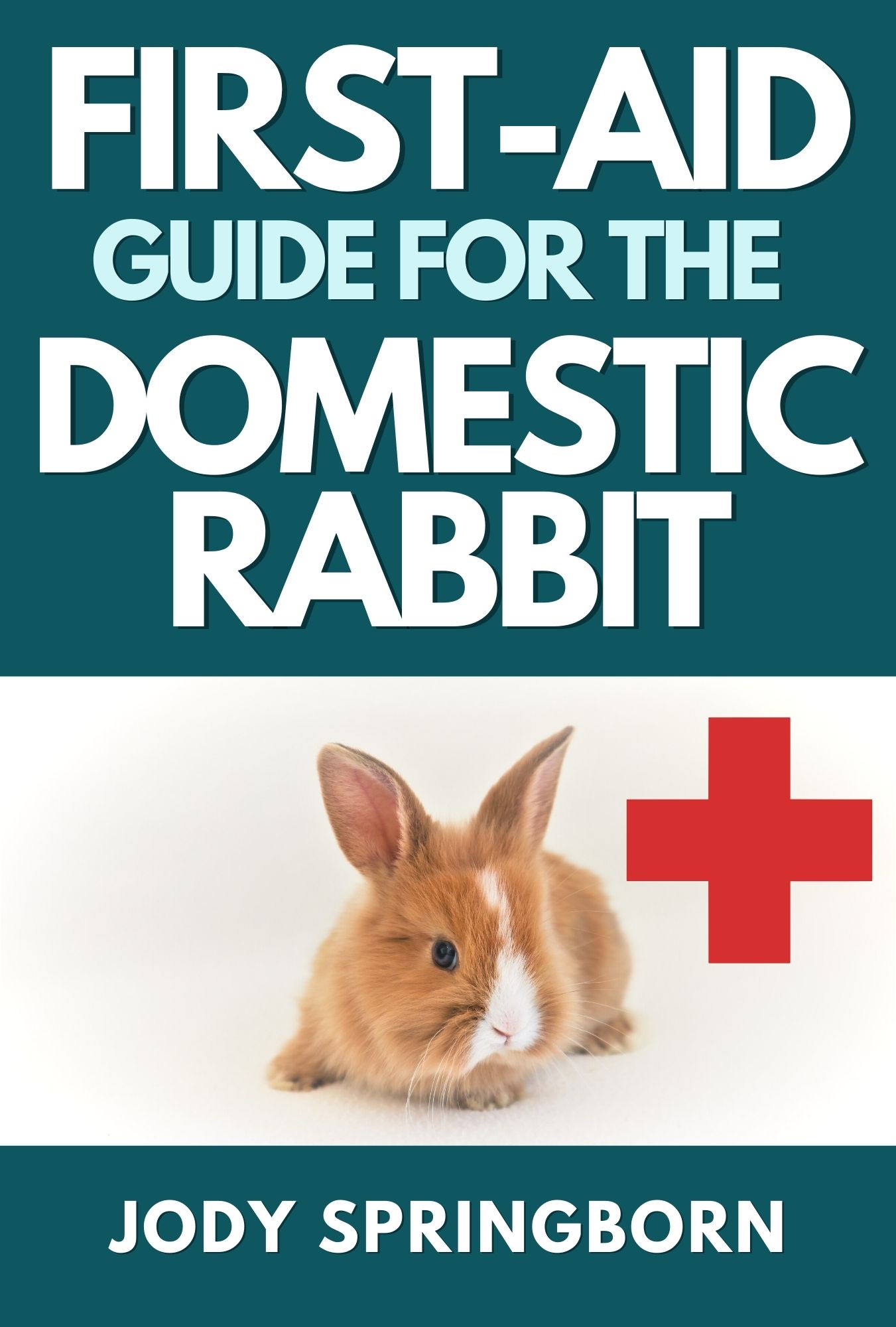- Home
- Basic Rabbit Care Facts
Basic Rabbit Care Facts
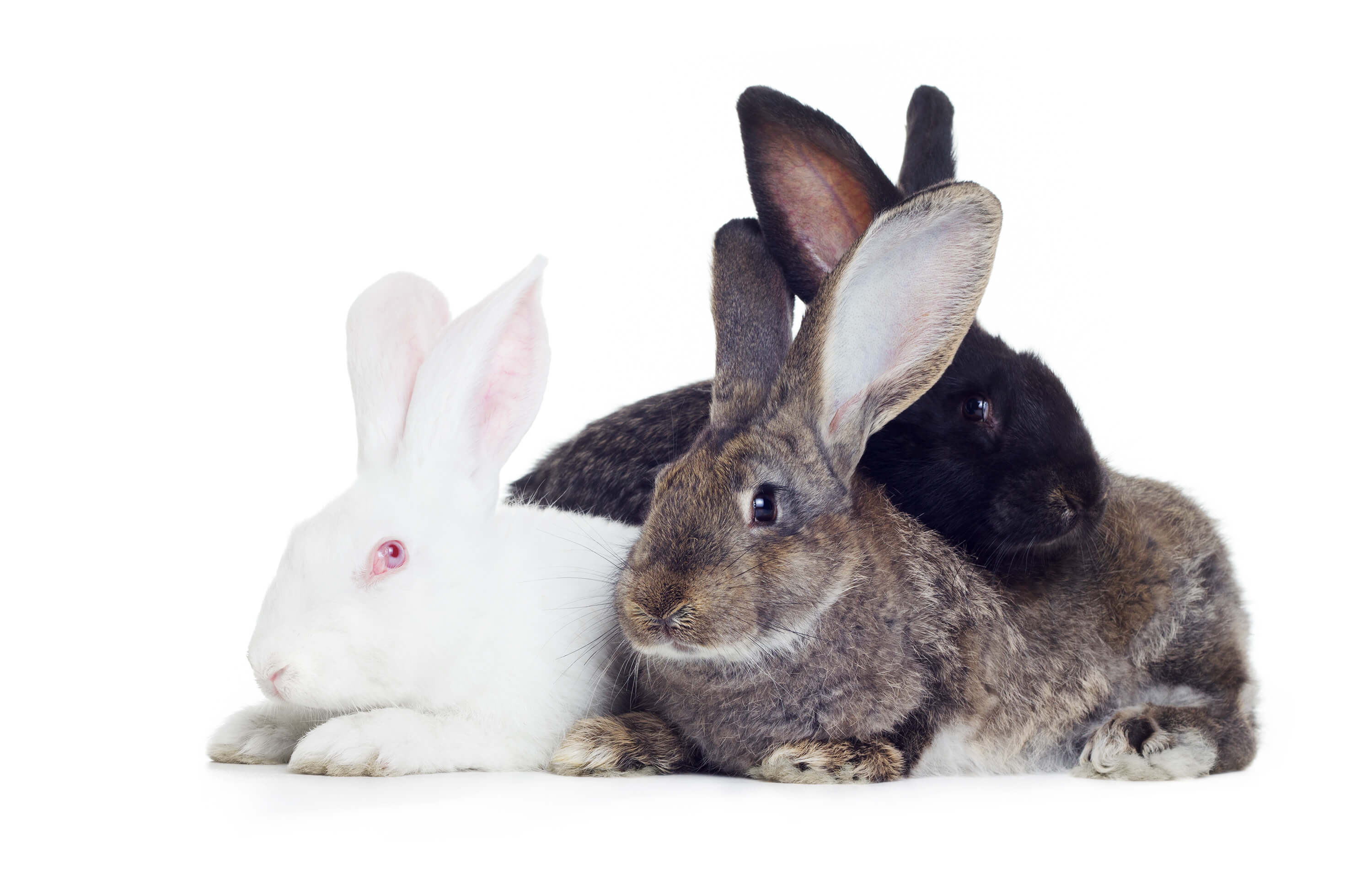 Photo by Organic Matter| Shutterstock.com
Photo by Organic Matter| Shutterstock.comBunnies Are Easy...Right?
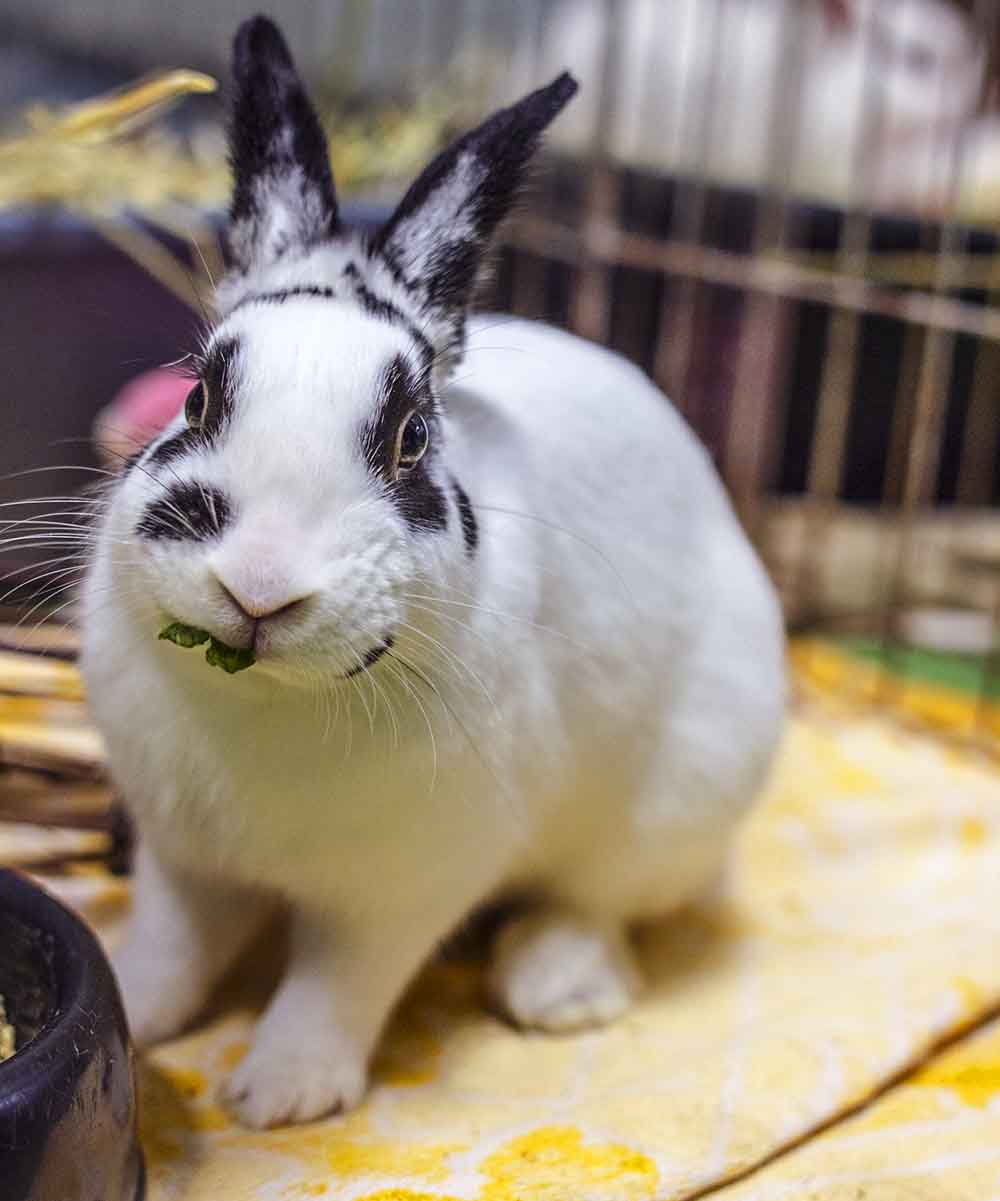 Joey
JoeyPhoto by Dustin Yoder taken at BunnyLuv Rabbit Resource Center.
There are basic rabbit care facts everyone interested in adopting a bunny should know.
Of course there are many reasons to love a bunny. The Internet is full of fluffy baby bunnies doing the most adorable things. After having your heart melt, did you begin dreaming of a house full of cuteness? Before you start calculating how many bunnies fit in the square footage of your home, be aware of these simple rabbit care facts.
Rabbit Care Fact #1: The Average Life Span of a Rabbit is 10 Years. Many people think rabbits only live 2 or 3 years. They are quite shocked to hear that the average is 10 years, and quite a few pampered bunnies can live to be 15 years old and beyond. Think of all the changes that can happen in your life - marriage, new job, moving, school, children (babies or having teenagers moving on to college), aging parents, etc. Will a rabbit (or any pet) travel with you? If your teenager brings home a bunny, but leaves him home while they move to that out-of-state college, will you take care of that bunny? It is easier to NOT adopt a rabbit than to try to rehome one.
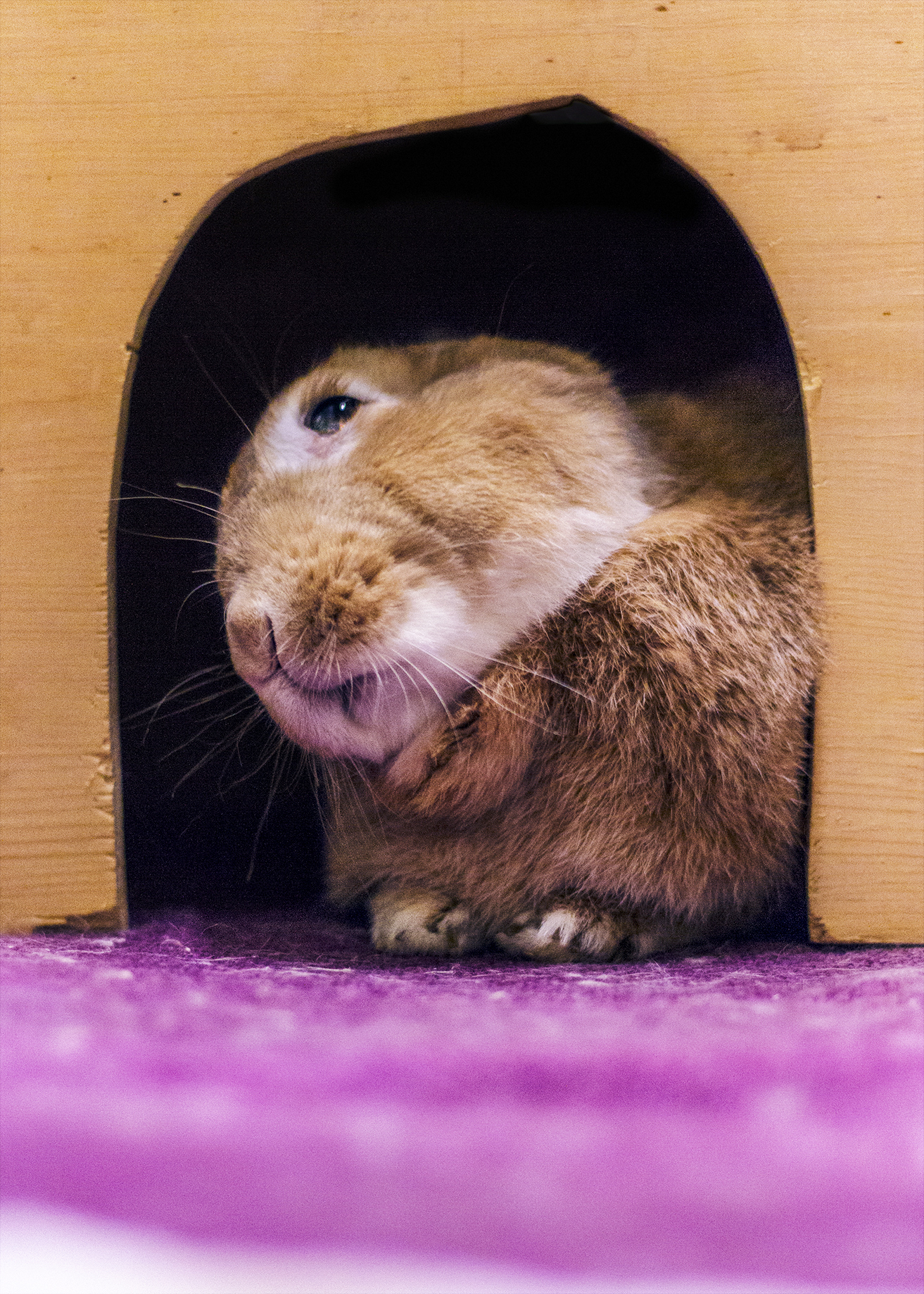 Poppy
PoppyPhoto by Dustin Yoder taken at BunnyLuv Rabbit Resource Center.
Rabbit Care Fact #2: A Rabbit’s Place is Inside. There are many reasons why a pet rabbit should not be in a hutch outside. They become targets from predators, parasites and weather alike. A domestic rabbit is NOT the same as a wild one. In North America they are two very distinct species, so much so that the two cannot reproduce together. This means that most domestic rabbits do not have good survival instincts and should not be left outside. Make your pet feel part of the family. Bring them inside!
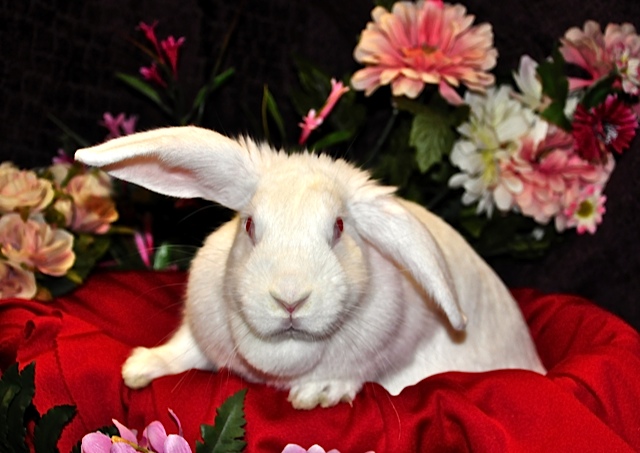 Emma
EmmaPhoto by Kristina Driskill taken at BunnyLuv Rabbit Resource Center.
Rabbit Care Fact #3: Rabbits are Clean (sort of). Rabbits themselves are very clean. They are always grooming themselves, and there is not much of an odor that can be detected on them. They generally take quite naturally to the litter box, which is nice, too. There are degrees as to how much a bunny will use the box. Many will do everything in the box. Some will urinate in the box and occasionally poop outside as territorial marking, and then there are those few who think litter boxes are for stupid rabbits (thanks Emma). Of course spaying and neutering helps improve litter box habits, so if you do decide to bring one into your home, make sure they have been spayed/neutered. However, the litter box is not the only thing that needs to be considered. Hay - their main source of food - is very messy. There is no getting around it. There will be hay everywhere, including places where really there should be no hay - freezer, sock drawer, behind the TV, in your underwear, etc. Your house will also be covered in fur. Generally, rabbits will shed every 3 months, with every other shed being a major one. However, there are those rabbits whose owners swear they shed heavily 365 days a year (yes, Sprinkles. I'm talking about YOU!)
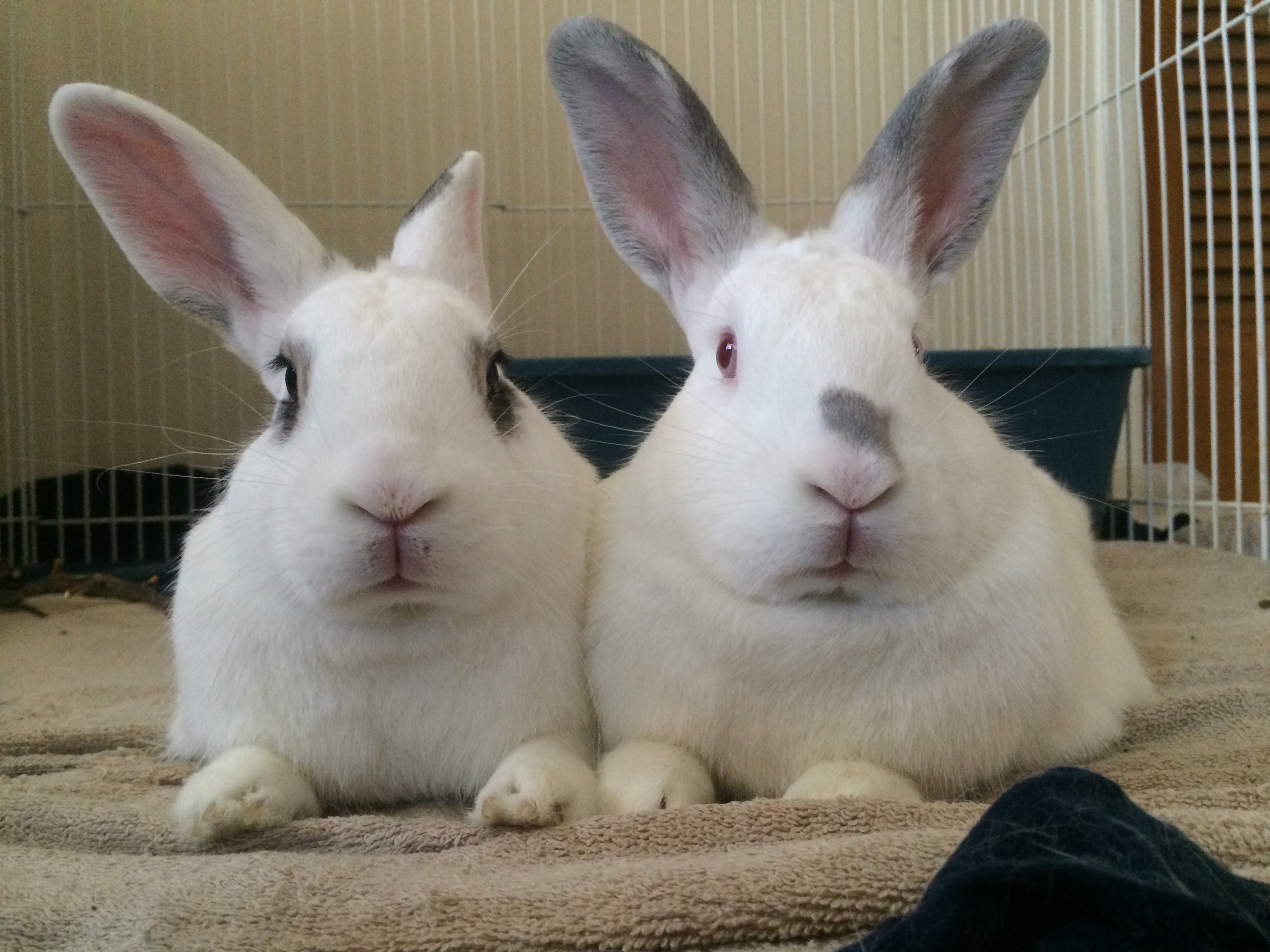 Cupcake and Sprinkles
Cupcake and SprinklesRabbit Care Fact #4: Speaking of hay.... There’s no getting around it! Hay comprises about 80% of a bunny’s diet. They must have it all the time, and they must have A LOT of it. Other than finding the stuff in your bookshelf and purse, the most problematic thing for people is allergies. Typically, people are not so much allergic to rabbits as to the hay (or, more specifically, the mold spores on the hay). Some allergy sufferers can manage with taking medication and limiting their exposure to the hay, while some people are sent to the ER because they can’t breathe. Figure out if you or anyone in your house are allergic, and if you are, what your tolerance is. As mentioned earlier, it is easier not to take home a bunny in first place than it is to rehome one.
 Photo by Irina Babina on Unsplash
Photo by Irina Babina on UnsplashRabbit Care Fact #5: Talk to the butt...unless you have banana. Many people don’t think rabbits have much of a personality, while in fact the exact opposite is true. If you give them space, attention and love, they will quickly take over your life, and one day, you will wake up with your rabbit banging their food dish on the floor, demanding breakfast, and breakfast better be the good stuff!! They demand attention when they want it; give you a sharp nip when they don’t (and you insist). They want their treats now, and they don’t understand why you are upset they destroyed the charger to your iPhone. After all, they did you a favor by killing it. You may now dish out the blueberries as a reward for all their hard work. They are divas. Yes, they are all fluffy and cute, but if you are hoping for a pet who can’t wait to be cuddled 24/7, your hopes may be dashed. They will give affection (or not at all) on their terms.
Rabbit Care Fact #6: Yes, they can bite. Rabbits are prey animals. They will protect themselves with the speed to get away, and teeth and claws to defend. Biting can mean different things, depending on the situation and rabbit. Sometimes the rabbit is terrified or he is defending his territory. Other times it is a method of communication. It was not uncommon to have a sick bunny express his opinion of the medicine you are giving him. A nice nip on the hand, leg or shoulder eloquently expresses their thoughts on the situation, the medication, you, your entire family going back generations and the universe in general. It usually shows up as a nice bruise to remind you of a disapproving bun.
Other times, they can sink their teeth into flesh, causing bleeding. This is a sign of a very angry or frightened bunny. The important thing is to figure out what triggers this reaction and deal with it appropriately. This may mean giving the bunny a safe space, more exercise time, spaying or neutering, or introducing a new bunny friend.
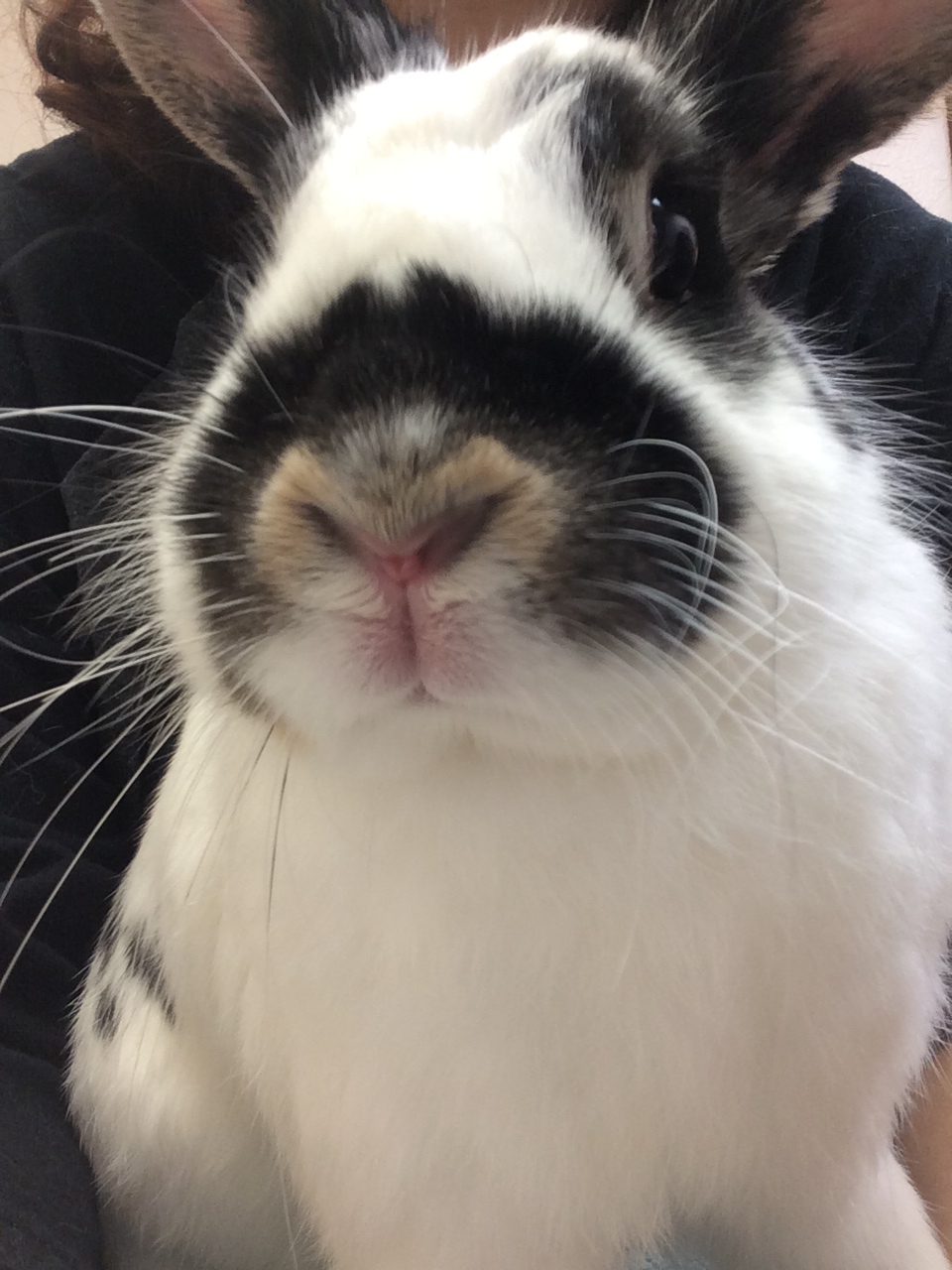 Oso
OsoRabbit Care Fact #7: You want how much?!!? Rabbits are expensive. Along with the hay, they also require a daily diet of fresh herbs and vegetables. Yet the biggest price tag comes with vet care. Rabbits are considered an exotic, so you need to see a vet who treats exotics. Typically that kind of treatment costs more than it would for a dog or cat. A simple office visit may be well over $100 (this price tag also depends on what part of the country you live in), while spay or neutering services can be $400-$600, and dental surgery may be a thousand dollars or more. This is because rabbits have unique needs that a vet and their support team need to be aware of before they treat or do surgery. Before bringing home that bunny, be sure you know of the nearest exotics vet in your area (as well as the nearest emergency vet. Rabbits like to get sick at the most inconvenient times - like Christmas Day). If the nearest vet is an hour or more away, you need to know this. Payment plans may be available through your vet clinic (Care Credit is a common one that many clinics will take). At the moment, Nationwide is the only insurance company that will cover exotic pets, however, there are many restrictions (and I personally do not find the policy very useful). If you do decide to go with it, do read over the policy carefully. I do recommend putting aside some money every month for potential emergencies.
Rabbit Care Fact #8: My 4-year-old wants a bunny. Despite the sweet pictures of toddlers with baby bunnies and chicks that show up on the Internet at Easter, rabbits and children are not necessarily a great mix. A rabbit can be extremely fragile, and if not handled properly, a child can cause severe or fatal injury. Putting aside the potential for broken legs and backs, rabbits can be shy and become stressed with improper interactions. As a bunny becomes more timid and spends the majority of the day hiding, owners start to lose interest. Not paying close attention to a rabbit can lead to severe health issues. Many seasoned bunny owners know there is only a short window of time to help an ill rabbit before a situation becomes tragic.
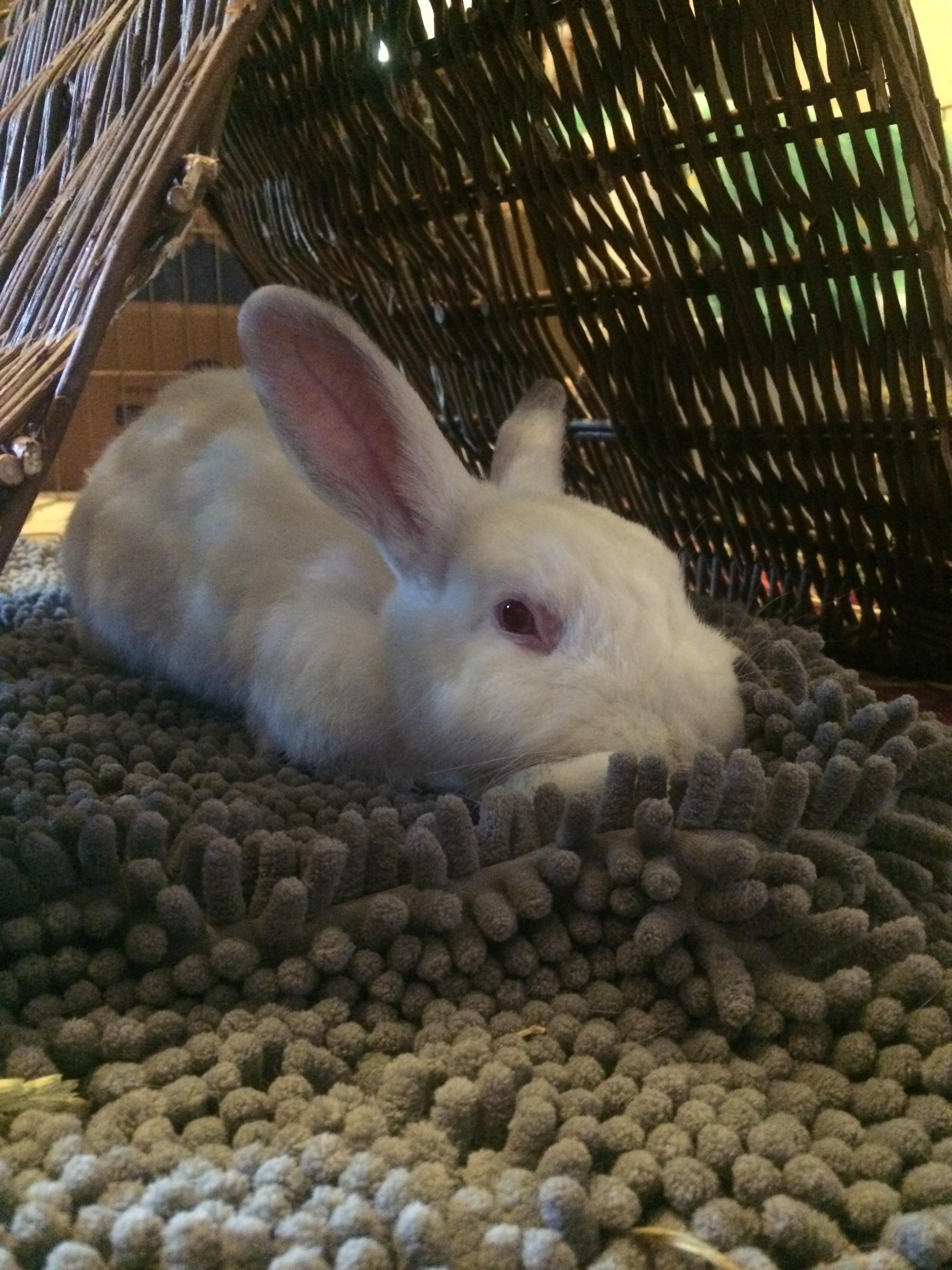 Abbey
AbbeyRabbit Care Fact #9: I’m looking for a dwarf bunny. "I have just enough room in my bookshelf for a cute little cage". The size of the rabbit doesn’t matter. The dwarves need just as much exercise as a 12lb rabbit (the giants such as a Flemish or Continental are a different matter). A typical rabbit cage which you can buy at most pet store retailers are much too small for any rabbit. To understand, it would be if I placed a child in a bathtub and told them this would be their room until they moved out at 18. Many people choose to have their rabbits occupy a room or even the entire house. However, if you do choose to restrict your bunny, the minimum enclosure for 1-2 rabbits is a 4x4 exercise pen with about 4-5 hours of daily exercise time outside of the pen.
 Whoppy Oso & Wilbur
Whoppy Oso & WilburRabbit Care Fact #10: Bunnies need friends! Yes, it's true. Left on their own, rabbits usually live in groups and enjoy the companionship of another bun. Can they be friends with you instead? Or maybe a cat and/or dog? Sure, but no one will understand your bunny like another bunny. A friend provides companionship, someone to groom, and someone to ease the stress of scary situations like a trip to the vet. However, despite their love of companionship, it is not a great idea to just put any strange rabbit with your bunny. That's a splendid way to start a serious fight. Introducing a new friend usually takes time and patience. Read more in the Bonding section.
OK, I Read Your Basic Rabbit Care Facts. Why Should I Adopt a Bunny?
There are many good things about rabbits. They are quiet. They are smart and they can be very engaging animals once you have earned their trust. Even the shy ones can warm up to you, if you have the time and patience to get to know them. They can learn tricks and their name. They have a keen sense of time (as to know when to expect breakfast and dinner), and know just what to do to make sure you share that banana you are eating. They can become your best friend, and they can terrorize your entire household, including cats, dogs, children and adults. They can adore you just as much as you adore them. You just need to know if a rabbit is the right pet for you, and to know what it takes to have a long, happy relationship with this unique animal.









